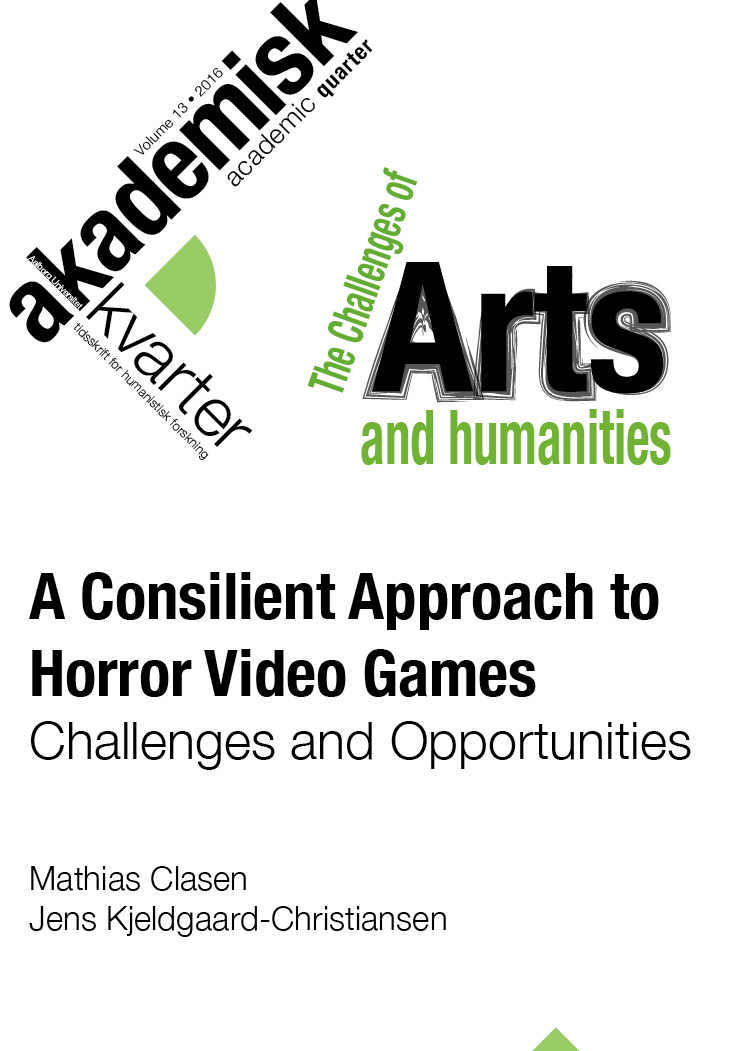Abstract | Abstract
In response to the crisis in the humanities, some scholars have proposed consilience as a solution. They argue that humanists should build on recent findings in the sciences of mind, including cognitive and evolutionary psychology. We discuss the benefits and pitfalls of such an approach, illustrating our discussion with an analysis of the horror video game Amnesia: The Dark Descent. We argue that recent theoretical and empirical developments in the evolutionary social sciences can make sense of how and why horror games so effectively foster immersion and predictable psychophysiological responses. They target evolved survival mechanisms and are structured to reward vigilance and persistence in the face of fear- and anxiety-provoking stimuli. Finally, we discuss and refute a number of common criticisms of the consilient approach.
